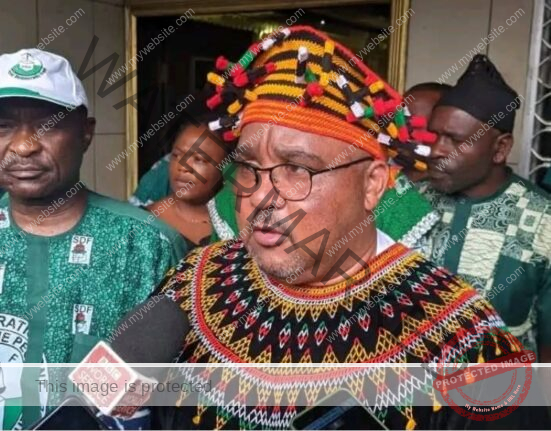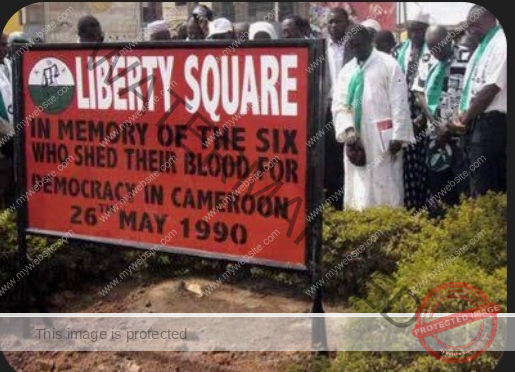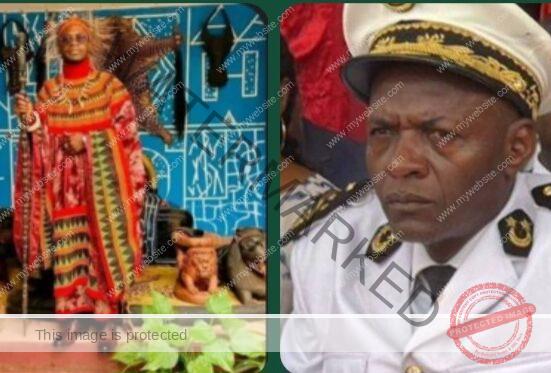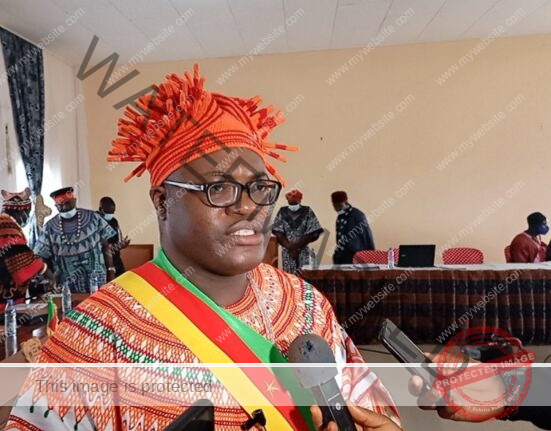letter to the Editor.
Sir/Madam,
The struggle of the Government of the Federal Republic of Southern Cameroons Ambazonia in Exile, led by Dr. Samuel Sako Ikome, invites comparison to a historical precedent the world reveres: General Charles de Gaulle’s Free France government in exile during the Second World War. Both represent the continuity of sovereignty under foreign domination, and both compel the international community to confront questions of justice, legitimacy, and the meaning of self-determination.
When Nazi Germany occupied France in 1940, the Vichy regime under Marshal Pétain collaborated with the occupiers. Charles de Gaulle, from London, declared that “France has lost a battle, but France has not lost the war.” At first dismissed as a rebel general without authority, de Gaulle gradually secured legitimacy by rallying French colonies, building resistance networks, and gaining recognition from Britain, the United States, and eventually the Allies. His Free France government in exile preserved the continuity of the French Republic and ultimately restored France’s sovereignty (Jackson, France: The Dark Years, 1940–1944, 2001).
The Ambazonian case, though rooted in Africa’s decolonization process, presents a similar claim. The Southern Cameroons, today known as Ambazonia, was a United Nations Trust Territory under British administration. In 1961, the UN General Assembly adopted Resolution 1608 (XV), endorsing independence through a federal union with the Republic of Cameroon, conditional upon the conclusion of a treaty of union between the two states (United Nations GA Res. 1608, April 21, 1961). Crucially, no such treaty was ever signed. Instead, the Republic of Cameroon unilaterally annexed Southern Cameroons on October 1, 1961, dissolving its democratic institutions and abolishing its federal status in 1972.
By the standards of international law, Ambazonians argue, this is not a case of secession. Unlike separatist movements seeking to carve out new states, Southern Cameroons was never lawfully joined to Cameroon in the first place. Its claim rests on the principle of continuity of sovereignty. As Judge Dillard observed in the ICJ’s Western Sahara Advisory Opinion (1975), “the right of self-determination is not extinguished by the mere assertion of sovereignty.” In Ambazonia’s case, sovereignty was never transferred. The annexation violated both Resolution 1514 (XV) on decolonization and the UN Charter’s principle of self-determination.
From exile, Dr. Sako Ikome leads a government that embodies this continuity. Its legitimacy is twofold: first, from the diaspora, where Southern Cameroonians abroad contribute resources, taxation, and diplomatic advocacy; and second, from the homefront, where communities in Ambazonia administer local governance, resist Cameroonian occupation, and recognize the authority of the exiled government. This dual mandate mirrors de Gaulle’s reliance on both the colonies abroad and the resistance inside France.
Furthermore, Ambazonia demonstrates elements of effective control, one of the Montevideo criteria for statehood (Montevideo Convention, 1933). Across much of Southern Cameroons, community councils and administrators function independently of Yaoundé, while community self-defense units (not a state army, but decentralized local militias) limit Cameroon’s sovereignty on the ground. As the ICJ noted in the Kosovo Advisory Opinion (2010), declarations of independence are not prohibited by international law when rooted in legitimate claims to self-determination.
The parallels with de Gaulle are therefore clear. Both governments-in-exile drew their authority not from recognition at first but from their refusal to surrender sovereignty. Both relied on support networks — de Gaulle from colonies and resistance fighters, Ambazonia from its diaspora and communities on the ground — to sustain their claim as the true representatives of their nation.
The crucial difference lies in international alliances. De Gaulle’s Free France ultimately triumphed because Britain, the United States, and the Soviet Union recognized him as indispensable in the war effort. Ambazonia has yet to secure recognition from any UN member state, and no major power has extended military support. Yet its legal case is arguably stronger than de Gaulle’s ever was. De Gaulle had to persuade the Allies to recognize him over the Vichy regime; Ambazonia need only demonstrate that the absence of the treaty of union required by Resolution 1608 (XV) makes Cameroon’s occupation unlawful.
The international community often insists that Africa’s borders are sacrosanct under the principle of uti possidetis juris. But that principle cannot justify annexation without consent. As the ICJ affirmed in the Frontier Dispute Case (Burkina Faso v. Mali, 1986), uti possidetis preserves colonial borders at the moment of independence — and for Southern Cameroons, that independence was never lawfully extinguished.
The lesson from history is that governments in exile cannot be dismissed simply for lack of recognition. Charles de Gaulle’s Free France, once ridiculed as a marginal voice, became the legitimate representative of the French Republic. Ambazonia, with its combined diaspora and homefront mandate, is today the legitimate representative of Southern Cameroons.
It is time the world acknowledged this. To mischaracterize Ambazonia as a separatist project is to obscure the truth: it is a state under occupation, asserting independence that was never lawfully surrendered. If de Gaulle’s Free France was recognized as the voice of sovereignty under occupation, then the Government of Southern Cameroons Ambazonia deserves the same serious consideration today.
Respectfully,
Johnson Fonwi




















Leave feedback about this